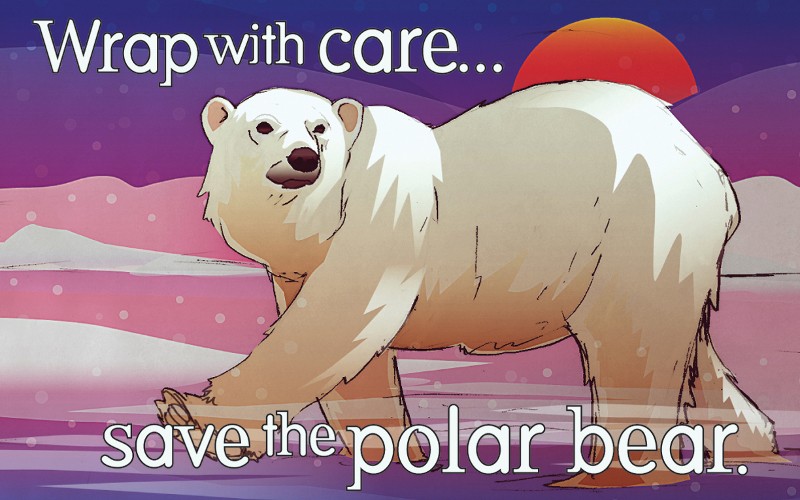The Center for Biological Diversity, headquartered in Tucson, started the Endangered Species Condoms project in 2009. The project began as a creative way to start the conversation about the link between human population growth and species extinction.
Leigh Moyer, the population organizer for the center, has been working closely with the Endangered Species Condoms project. She said the Center has worked since the late 1980s on species protection and protection of the environment.
“We kind of had this realization that until we address our rapidly growing human population and overconsumption, we weren’t really going to solve the problem,” Moyer said.
Center employees wanted to get people talking about these subjects, but realized the difficulty of their discussion.
Moyer said these topics are difficult conversations to bring up because taboos still exist around talking about sex, how many children you can have and population control.
“So all of these issues sort of culminated in realizing that condoms are kind of funny,” Moyer said. “It’s kind of funny to hand them out to people—it definitely gets their attention.”
The condoms are packaged with colorful designs—with each being illustrated by a different endangered species and a relevant saying.
“They say silly, almost ridiculous things, really just to get people’s attention,” Moyer said.
These silly sayings include, “In the sack? Save the leatherback,” and, “Use a stopper… save the hopper.” They were printed on previous years’ condom packets, highlighting the endangered leatherback sea turtle and coquí quajón rock frog.
The organization has handed out condoms since 2009 through a network of volunteers and has already distributed over 650,000.
The whole point is to get people talking about population as an environmental issue.
RELATED: Tucson Water hopes to have Santa Cruz River flowing within two years
“Once people are talking about it, they can start making educated decisions to make change,” Moyer said.
The center has handed the condoms out all over the U.S. at birthday celebrations, concerts, farmers markets, classrooms and more. They have also distributed to groups in Mexico, Canada and England.
Volunteers can sign up on the center’s website to distribute condoms.
Moyer said she recognizes the need for this type of discussion all over the planet, including—if not especially—developing countries.
“We consume vastly so much more here, that a child here is going to have a much greater effect on the environment than a child in another country,” Moyer said.
She said that this global problem needs to be addressed everywhere, but as individuals, we have to make changes where we are.
“What we’re working on is getting the conversation started and making the changes here in the U.S., where we live and where we work,” Moyer said.
Moyer was first introduced to the condoms when someone handed her one at the UA. The center has worked with several groups and individuals at the UA.
Brianna Zurita, a UA graduate student who was the president of the Marine Awareness and Conservation Society club during her undergraduate studies, found an opportunity to volunteer with the center.
She reached out to the organization and began distributing condoms at outreach events as well as during the fall and spring club fairs.
Zurita said people don’t normally think about population control and species extinction as connected problems, and condoms grab peoples’ attention.
She said this program has been effective because college students are a good target audience. That’s why she chose for her club to distribute these condoms at the UA.
“We’ve had really good luck with it—the first club fair that we had it was in fall 2015,” Zurita said. “I think we brought in like 300 condoms and we ran out of them within the first hour of the club fair.”
Moyer said college students play a critical role in what’s going to happen to the environment and the earth.
“If we can slow or stop population growth, and if we can slow or stop the sixth mass extinction that we are currently in, that would be huge,” Moyer said. “I mean, we could be
that generation.”
The condoms are Sustain-brand, vegan, fair trade and free of animal by-products, nitrosamine and GMOs.
If you’re interested in picking up your own box of conservation-supporting condoms, the Center for Biological Diversity will have a table at the Environmental Club Fair on Nov. 30 from 10 a.m. to 12:50 p.m. on the UA Mall.
Follow Isaac Andrews on Twitter.









